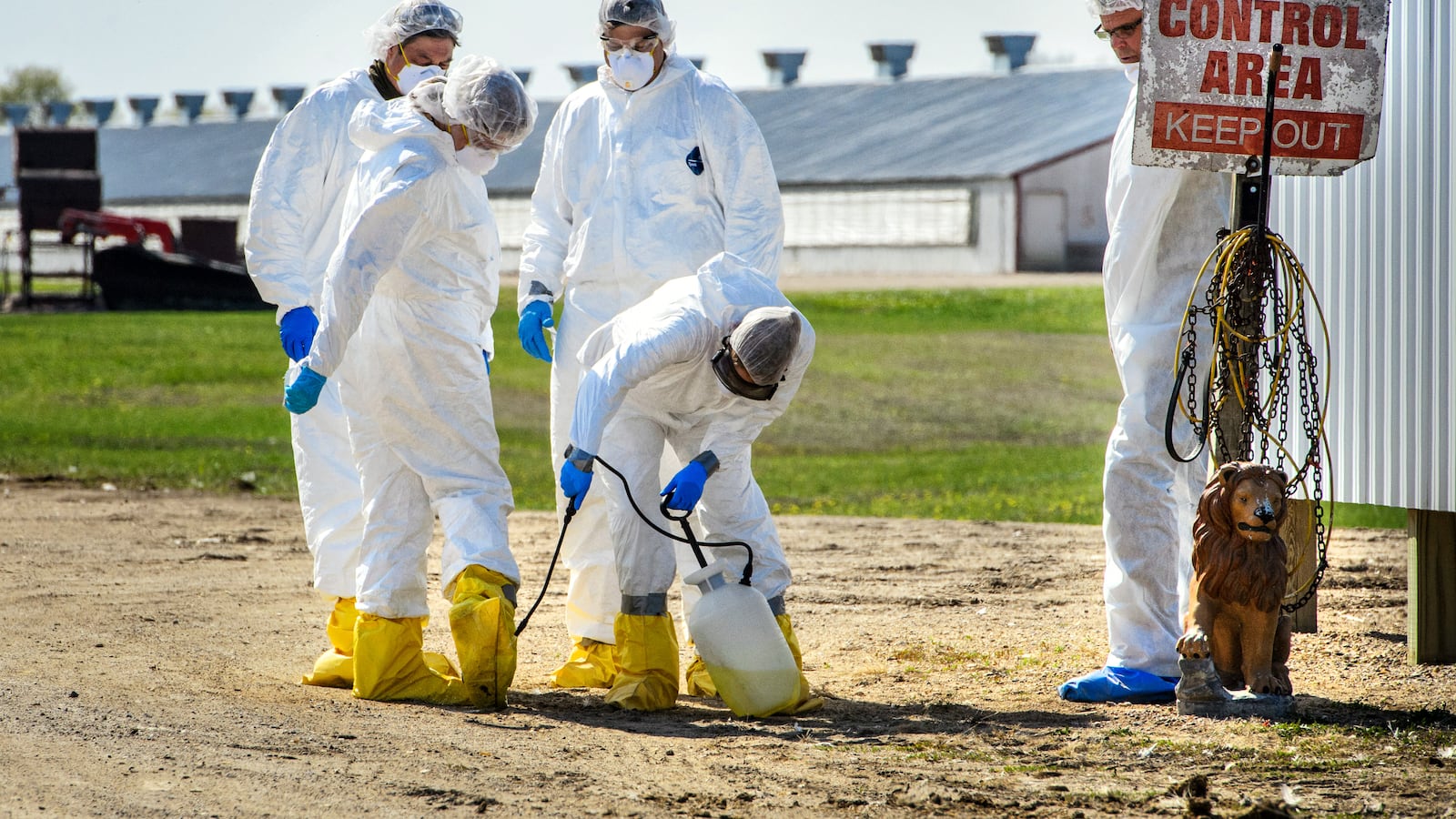The U.S. Department of Agriculture accidentally fired employees working to control the H5N1 avian flu outbreak and is now scrambling to reverse its blunder.
“Although several positions supporting [bird flu efforts] were notified of their terminations over the weekend, we are working to swiftly rectify the situation and rescind those letters,” a spokesperson for the agency told NBC News.
The hasty terminations were made as President Donald Trump’s administration continues to press departments and agencies across the federal government to lay off thousands of staff.
The cuts are part of an effort to reduce federal spending by $2 trillion that is being orchestrated by Trump lieutenant Elon Musk and the task force dubbed the Department of Government Efficiency (DOGE).
DOGE, multiple reports have revealed, is primarily staffed by non-experts with virtually no experience in government, many of them teenagers and early twentysomethings left to make unqualified judgments about cuts to a vast array of complex federal programs.
The ongoing H5N1 avian influenza, or bird flu, outbreak that began in 2022 is the latest area in which the Trump administration has pursued hasty cuts without seeming to have assessed the potential fallout.
Last week, the administration rushed to reinstate nuclear safety employees who were given pink slips, and struggled to find some because officials didn’t have their non-professional contact details.
Meanwhile, at the USDA there are multiple agencies under the Department of Agriculture working on the response to the bird flu outbreak that could be impacted, among them the Agricultural Research Service and the Animal and Plant Health Inspection Service.
A quarter of the staff working at the USDA’s National Animal Health Laboratory Network program office—which is involved in coordinating the work of dozens of laboratories responding to the avian flu outbreak—were laid off on Friday, Politico reported.
NBC News reported that multiple Republican lawmakers have privately complained to the Trump administration about DOGE’s rapid cuts as they pertain to the avian flu.
“They need to be more cautious,” Rep. Don Bacon (R-NE), told the broadcaster. “There’s an old saying, ‘Measure twice, cut once.’ Well, they are measuring once and having to cut twice. Some of this stuff they’re going to have to return back. I just wish they’d make a better decision up front.”
The latest rush to cut spending comes as ongoing bird flu outbreaks—which have affected over 162 million birds in the U.S. since January 2022, according to the Centers for Disease Control—have grown increasingly dangerous and driven egg prices to modern highs.
Data released by the U.S. Bureau of Labor Statistics last week showed that the average price of large grade A eggs is the highest in 45 years.
A new version of the virus, which first emerged in wild migratory birds, jumped to farmers’ flocks late last year.
The new genotype has also infected cows and humans, resulting in the first human death in the United States last month. The CDC has confirmed 68 cases among humans in the U.S. so far.
On Jan. 31, the USDA announced that said the virus was detected in Nevada’s milk supply.
In December and January alone, farmers were forced to cull 41 million birds due to influenza exposure, roughly three times the amount culled a year ago.
“I call this virus a terrorist,” Greg Herbruck, the CEO of egg producer Herbruck’s Poultry Ranch and whose business has lost millions of birds, told the San Antonio Express News last week. “And we are in a battle and losing, at the moment.”









